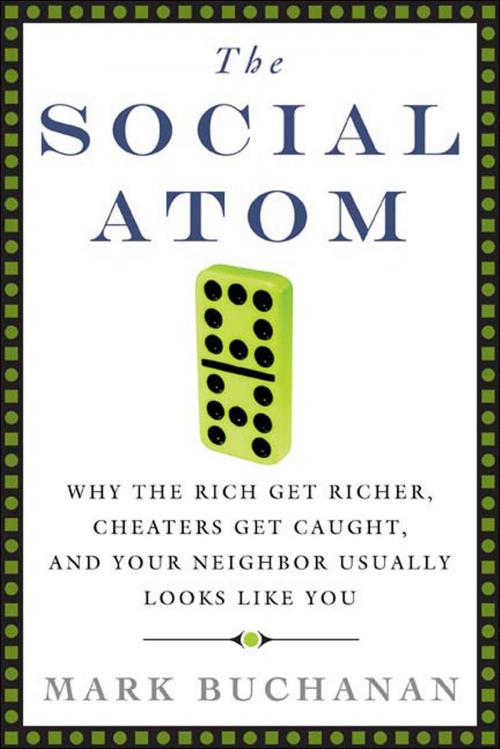The Social Atom
Why the Rich Get Richer, Cheaters Get Caught, and Your Neighbor Usually Looks Like You
Business & Finance, Marketing & Sales, Consumer Behaviour, Nonfiction, Social & Cultural Studies, Social Science, Sociology, Urban| Author: | Mark Buchanan | ISBN: | 9781596917316 |
| Publisher: | Bloomsbury Publishing | Publication: | December 5, 2008 |
| Imprint: | Bloomsbury USA | Language: | English |
| Author: | Mark Buchanan |
| ISBN: | 9781596917316 |
| Publisher: | Bloomsbury Publishing |
| Publication: | December 5, 2008 |
| Imprint: | Bloomsbury USA |
| Language: | English |
The idiosyncrasies of human decision-making have confounded economists and social theorists for years. If each person makes choices for personal (and often irrational) reasons, how can people's choices be predicted by a single theory? How can any economic, social, or political theory be valid? The truth is, none of them really are.
Mark Buchanan makes the fascinating argument that the science of physics is beginning to provide a new picture of the human or "social atom," and help us understand the surprising, and often predictable, patterns that emerge when they get together. Look at patterns, not people, Buchanan argues, and rules emerge that can explain how movements form, how interest groups operate, and even why ethnic hatred persists. Using similar observations, social physicists can predict whether neighborhoods will integrate, whether stock markets will crash, and whether crime waves will continue or abate.
Brimming with mind games and provocative experiments, The Social Atom is an incisive, accessible, and comprehensive argument for a whole new way to look at human social behavior.
The idiosyncrasies of human decision-making have confounded economists and social theorists for years. If each person makes choices for personal (and often irrational) reasons, how can people's choices be predicted by a single theory? How can any economic, social, or political theory be valid? The truth is, none of them really are.
Mark Buchanan makes the fascinating argument that the science of physics is beginning to provide a new picture of the human or "social atom," and help us understand the surprising, and often predictable, patterns that emerge when they get together. Look at patterns, not people, Buchanan argues, and rules emerge that can explain how movements form, how interest groups operate, and even why ethnic hatred persists. Using similar observations, social physicists can predict whether neighborhoods will integrate, whether stock markets will crash, and whether crime waves will continue or abate.
Brimming with mind games and provocative experiments, The Social Atom is an incisive, accessible, and comprehensive argument for a whole new way to look at human social behavior.















